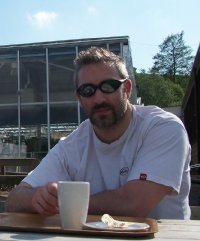
I am very happy to be introducing you to my guest today. I met
Mark Rice through Goodreads. As soon as I saw the cover of his book I knew I had to read it. As many of you already know, I am a heavy metal fan, so how could I not read this book? I had high expectations of
Metallic Dreams and it definitely lived up to my expectations. It's a brilliant novel, a perfect gift for the metal fan in your life. It's one of the funniest books I've ever read, too. I almost laughed out loud while reading it in public, a couple of times.
You have the chance to win a print copy of
Metallic Dreams, and can choose whether it is signed by the author! In fact, Mark has very generously offered to give away two copies of his book. All you have to do to enter is leave a comment on this blog post, or simply 'Like' the post. Two lucky winners will be picked at random on the 30th November 2011.
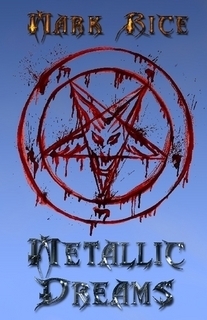
A word of warning: This is an adult book and not suitable for readers under the age of 18.
Mark kindly agree to answer a few interview questions I sent him:
Your bio on your Lulu page, states that you started writing at the age of 5. Firstly, that’s quite impressive, is it true? If so, have you kept any of your earlier stories or do you remember what they were about?It's absolutely true, yes. I grew up in a house with no TV. My father believed that staring at television diminished creativity. The house was full of books, music and musical instruments. My Dad taught me to read (music and words) before I started primary school. We spent endless hours - both at home and in the local library - reading and writing. At the time, I thought the lack of TV at home was a harsh measure, but with hindsight I wouldn't change it, as I learned to love music and literature. My early writing fell mainly into two categories: poems (especially acrostic poems, which I had a real fondness for) or stories involving frogs, witches and trees (which were/are three of my favourite things).
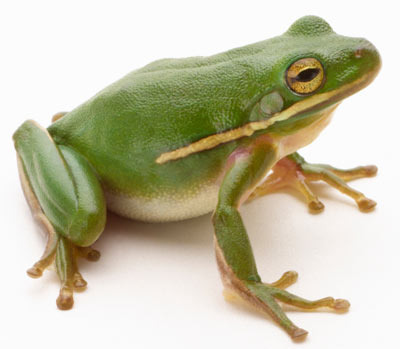
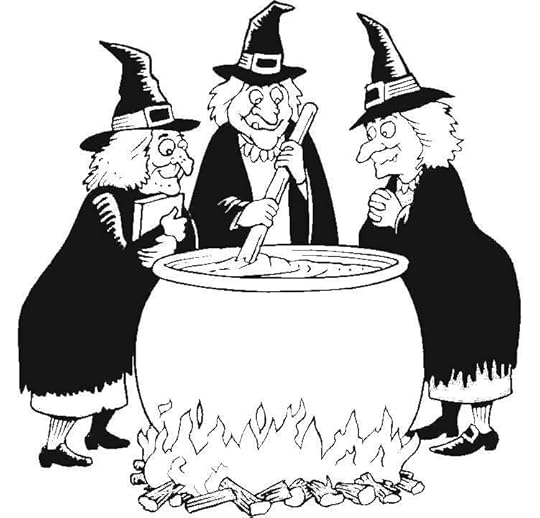

I even made a tree-shaped cover for one of these early stories, and sellotaped various types of bark onto the empty spaces on each page. It was a child's literary equivalent of a concept album, I guess. My mother still has that book. She reckons it's the best thing I've ever written!
Is there a particular author, or book, that inspired you to start writing? The poetry of
Robert Burns has been a presence in my life since early childhood, once again thanks to my father, who was an aficionado of Burns and knew most of his poetry off by heart. Burns's masterful use of language, rhythm and rhyme instilled in me a love of the Scots dialect and inspired me to write poetry. His Magnum Opus,
Tam O' Shanter, was partly responsible for my childhood obsession with witches (which I've never fully recovered from - witches still find their way into my writing). As far as prose goes, Douglas Adams's
The Hitchhiker's Guide to the Galaxy blew my mind with its seamless blend of the profound and the preposterous. At his best, Adams was creativity and cleverness run amok. More than any other author, Douglas Adams inspired me to write novels. So blame him!
Do you have an tips for someone who is considering self-publishing their own book?Do it. New novelists could wait for years on literary agents finding them a publishing deal. In the meantime, their manuscripts will be a low priority to the agencies acting on their behalf. Self-publishing is easier than ever before, especially with the advent of e-books, so there's no excuse for sitting around waiting on responses from agents and publishers. Start the ball rolling by yourself. If your self-published book becomes a success, established publishing houses will approach you anyway. One thing I'd say is don't ever publish a first draft. My rule is to spend at least as much time editing a piece of work as writing it. This ensures that only polished material goes to print. It also provides priceless editing experience. Another vital skill for writers is marketing their work. Don't wait until your book is published before learning the ins and outs of online marketing. Begin promoting your book before it's published. If you have a well-written blog with followers, that's an excellent start, as those followers will be likely to read your book when it's released.
Your debut novel, Metallic Dreams, is as the title suggests, about heavy metal music. What was the first metal gig you attended, and what are your memories of that gig?Iron Maiden at Glasgow Apollo, on
The Beast on the Road tour in 1982. I was in primary six at the time. Initially, my Mum and Dad had doubts about me going to a metal gig on my own, especially on the mean streets of Glasgow. When my friend David (who was three years older) bought a ticket, my parents became happier about the whole thing, as I wouldn't be going alone. I remember every detail. The support band, The Rods, were so good live that Dave and I didn't think Iron Maiden could possibly top their performance. Then Maiden hit the Apollo stage and blew the roof off the place. I knew their songs inside out, but was used to hearing them in darkened rooms. Seeing those same songs performed live by musical icons clad in spandex, denim. leather and studs was a whole different experience. The wall of sound was vast. The band members' manes of hair billowed under stage lights as they wandered through clouds of dry ice. Just when I thought things couldn't get any better, Maiden's giant mascot Eddie (famous from their album covers) lumbered onto the stage. Beaming at each other, Dave and I shared a telepathic moment, thinking, 'Now this is living!'
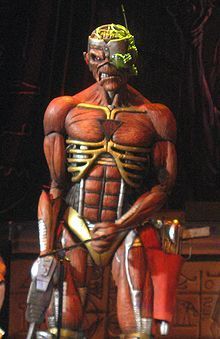 One of the questions the rock journalist in your novel asks the band members is ‘What would you change about Heavy Metal?’ What would your answer be to that?
One of the questions the rock journalist in your novel asks the band members is ‘What would you change about Heavy Metal?’ What would your answer be to that? I'd allow gig-goers to carry electric cattle prods into concerts, for the purpose of zapping voltage into anyone who farts during the performance. My friend Darran is a prime example of why I'd introduce this change. More times than I care to remember, Darran has let loose an evil mist during a gig, sending everyone within a ten-foot radius into a state of panic. The most disturbing thing about this is that he enjoys it. If I'd had my electric cattle prod on those occasions, he'd have learned his lesson long ago and would be more considerate as a result. I'd have zapped that deviant grin right off his face.
As for metal music, I'd leave it alone, as it's developing fine by itself without any intervention, spreading out into an ever-expanding number of subgenres, all of which have artistic merit. Lyrically, I'd clean up the shabby grammar and questionable poetics that are a little too prevalent. That'd be my only change.
Do you have a favourite Heavy metal band? If so, what is it about their music that you love?My all-time favourite band is the AC/DC line-up of Bon Scott (vocals), Angus Young (lead guitar), Malcolm Young (rhythm guitar), Cliff Williams (bass) and Phil Rudd (drums). Their live album If You Want Blood (You've Got It) - recorded at
Glasgow Apollo - has been my favourite album since I first heard it at age eleven. The energy level is off the scale, the songs are anthemic, Bon's vocals are flawless and the guitar riffs can strip wallpaper.
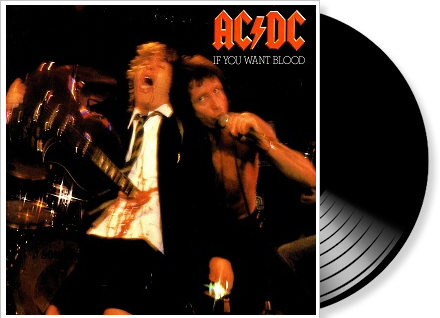
Of currently existing line-ups, my favourite two bands are from Finland -
Insomnium and
Amorphis. They both have a stunning ability to blend extreme heaviness with poignant melodies, as well as writing beautiful lyrics influenced by their country's folklore. I should also mention
Nimbatus, a musical project which is the brainchild of one genius, Marco Jodocy, who plays guitars, bass, keyboards, drums, strings and various other instruments, all to an astonishingly high standard; the result sounds like a heavy metal orchestra, yet it's all the work of one man.
Without giving any of the story away, a couple of taboo/controversial topics are explored in Metallic Dreams, were you ever worried about how people would react to the said content? No. I don't believe in censoring my art or walking on eggshells. I think the best way for a writer to shine light on a particular prejudice isn't to preach against it (which can annoy readers), but to create storylines - often shocking ones - which highlight the futility of that prejudice, leaving readers to draw their own conclusions. It worked for Aesop with his fables all those centuries ago, and it still works today.
There are five members of Transcend Everything, the metal band in Metallic Dreams, with very different personalities. Were any of them based on people you know and/or famous band members?All five band members were based on people I know and grew up with. The names have been (slightly) changed to protect the guilty.
It is said that writers put a lot of their own soul into their fiction work. How autobiographical is the book? That's a loaded question if ever I saw one! The early chapters are much more autobiographical than the later ones. As for which events actually happened, I'm not telling!
How long did it take to write Metallic Dreams? One year to write then two years to edit and polish.
As well as Metallic Dreams, you have a story featured in an anthology A Blended Bouquet. Can you tell us a little bit more about how that anthology came about, and a bit about your featured story?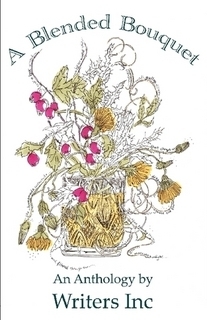
Five years ago I was lucky enough to become part of Writers Inc, which was started by author/playwright Drew Campbell back in the '90s. Based in East Kilbride (the town in which I grew up), the group includes writers from a variety of disciplines: authors, poets, playwrights, screenwriters, songwriters and short-story writers. Writers Inc had already published two anthologies when I joined, with a third on the horizon. After I'd been part of the group for three years, the elusive third anthology showed no sign of becoming a reality. In fact, it had become a bone of contention within the group, with arguments exploding over whether or not it should be themed or free-form. Realising that this non-existent book was causing chaos among the group, I stepped up to the plate, took over as chairperson (by vote, I should stress, not by force!) and offered to edit, compile and publish the anthology. All I needed from the other members was their submissions and - as if by magic - I'd make the anthology appear. The others liked this idea. Submissions arrived thick and fast. My story, Revelation Was Wrong, tells the tale of a drunken Scottish prophet who claims to be a descendant of Nostradamus. It's a light-hearted piece of social commentary infused with a healthy dose of preposterousness. The idea for Tam, the unlikely prophet who foretold that the end of the world would be heralded by the 'Buckfast Apocalypse', came to me out of the air one day. In my mind's eye I saw Tam, knew him, so I figured I should tell his story. I'd long been fascinated by tales of the Brahan Seer (
Coinneach Odhar), Scotland's answer to Nostradamus. This fascination probably played a subconscious role in inspiring Revelation Was Wrong. A strange thing happened with regards to the anthology: James Pettigrew and I both submitted poems called Homecoming, each with very different subject matter. His dealt with the desecration of Scotland's wild places, while mine told the true story of taking my father's ashes to his home, the Isle of Lewis. At first, we thought that one of us would have to change the title of his poem. Then we realised that 2009 - the year of the anthology's publication - was the 250th anniversary of the birth of Scotland's national bard, Robert Burns, and events to celebrate this milestone were being marketed under the banner Homecoming Scotland. James and I looked at each other and smiled, realising that the Universe had somehow lined up these serendipitous events. As a tribute to Burns, James and I left the titles of our poems unchanged. My Homecoming opens the anthology and James's Homecoming closes it in style.
Are the rumours true, did you sell your soul to the devil in exchange for literary prowess? After reading Metallic Dreams, I am left wondering...Auld Nick and I are acquainted, but we're neither friends nor enemies.
Who are your favourite authors and what is it about their writing that you like?Douglas Adams blows my mind with his cleverness, creativity and humour.
Salman Rushdie's command of descriptive prose is out of this world, as is his ability to weave myriad story strands into a coherent, interconnected whole.
Markus Zusak's writing - especially in
The Book Thief - has immaculate delicacy and tenderness. By succeeding without pandering to literary trends,
Irvine Welsh opened the floodgates and showed that it was possible for a Scottish author to be fearless, funny and authentic.
Tom Bryan, under whose strict tutelage I learned a lot, is a master of saying more with less; Tom taught me the importance of relentless editing.
Kevin MacNeil is a force of nature whose writing is shaped by a poet's soul and a wonderful Hebridean heart. The heavy metal legend
Zodiac Mindwarp (who writes books under his real name,
Mark Manning) is monumentally creative and side-splittingly funny. And
Bill Drummond...well, everything he does is pure art.
Is there a book you own that you’ve read more than once? There are several. One that might surprise some people is The Bible, which I read cover to cover countless times while still at primary school. I've read all the Douglas Adams books multiple times. I liked Raymond E. Feist's
Faerie Tale enough to read it twice.
Zen Flesh, Zen Bones: A Collection of Zen and Pre-Zen Writings is another one that's been read multiple times. There are loads of others too, but these are the ones that spring to mind.
What was the last book you read? The Silver Mist by Martin Treanor. The main character, Eve, moved me to tears more than once. Set in Northern Ireland during the '70s, the story - especially the dialogue - has gorgeous Irish warmth. A beautifully written novel.
Are you reading a book at the moment? Gods Without Men by Hari Kunzru. Rather impressive.
What do you think of ebooks? As a writer, I love them. As a reader, I prefer the tactile experience of handling a paperback.
How important are reviews for you as a writer? Very important. They influence potential buyers and - in extreme cases - can affect the way a writer perceives his/her work. Writers, like other artists, tend to be sensitive souls who can take negative reviews personally. It's an amazing feeling to know that a story has made an emotional connection with a reader. It's always heartening to hear that a story I've created has resonated with a reader. I'm also happy to read constructive criticism...if it's justified. The only review that ever riled me was by a wannabe literary critic who started out by saying, 'I'm a music critic, not a book critic.' He should have left it at that, as what followed was incoherent, immature and peppered with grammatical mistakes such as misconjugated verbs. His voice was that of a pseudo-superior smartarse, yet he had trouble correctly constructing a sentence. I did the unthinkable for a writer: I posted a comprehensive rebuttal of the entire 'review', ripping it to shreds, pointing out every grammatical error, highlighting his absolute failure to perceive message/humour in the story, and advising him to stick to his day job and leave literary criticism to those equipped to do it properly. So yes, reviews - whether glowing or scathing - have an impact.
How did you choose the cover for Metallic Dreams? I had various ideas in mind, one of which was a pentalpha (pentagram) in blood, as that symbol and substance are integral to the story. The artist David Gurrea had created the exact pentalpha I'd envisioned, red blood on a white canvas. (Albums by Venom and Bathory had featured the pentalpha and goat's head, but the goat/Devil head David Gurrea created was a million times more menacing, right down to the way one eye was half shut, creating the impression that the beast was glaring out at the viewer.) I contacted David, who was happy for me to use his artwork. A fiddly job ensued: using Photoshop to remove every single drop of spattered blood from the white canvas, then superimposing them onto the book cover I'd created.
What are you working on now? My second novel, which is set on the Isle of Lewis, in Scotland's remote Outer Hebrides. I won't reveal more than that just now, as I don't want to jinx it. I'm also working on a few poems, a couple of short stories and one not-so-short story (about witchcraft in Scotland). See what I mean about those witches? They always find a way into my work. While researching the story, I accessed the University of Edinburgh's 'Survey of Scottish Witchcraft Database', which is the most comprehensive record of the witch trials that happened here. I discovered that four members of my family, all on my mother's side, were tried as witches. Worryingly, but not surprisingly, there is no record of what happened to them after the trial. It doesn't take a genius to figure out what that means. Perhaps that's why witches have always been in my consciousness: maybe I could sense that ancestors had suffered inhuman treatment after being accused of witchcraft.
Where can people buy your book? LuluAmazon UKAmazon USSmashwordsDo you have your own website or blog where people can read more about your work? FacebookThanks for answering my questions, Mark and for the great giveaway!
------------------------------------------------------------------------------------------------------------
Remember, all you have to do to enter the competition is leave a comment here, or simply 'Like' the post. Good luck!
Mark is a charming and friendly author and is here on Goodreads, so don't forget to add him as a friend!
 newest »
newest »
 newest »
newest »
 I really enjoyed reading this interview - thank you, Maria, for recommending the book. I would LOVE to read a copy!
I really enjoyed reading this interview - thank you, Maria, for recommending the book. I would LOVE to read a copy!
 I'm happy you enjoyed the interview, Angela. Thanks for your comment.
I'm happy you enjoyed the interview, Angela. Thanks for your comment. Great interview - really enjoyed reading it. So pleased for you Mark.
Great interview - really enjoyed reading it. So pleased for you Mark. Gill wrote: "Great interview - really enjoyed reading it. So pleased for you Mark.
Gill wrote: "Great interview - really enjoyed reading it. So pleased for you Mark. Just think of how many 'readers' there would be without TV! Can't beat a good story mixed with our own imagination.
Just think of how many 'readers' there would be without TV! Can't beat a good story mixed with our own imagination. Maria, I saw your tweet on this book after you'd reviewed it and immediately added it to my wish list. After reading this interview, I have to bump it up to my 'hurry up and read' list. (Yes, I really do have a list by that name!)
Maria, I saw your tweet on this book after you'd reviewed it and immediately added it to my wish list. After reading this interview, I have to bump it up to my 'hurry up and read' list. (Yes, I really do have a list by that name!)  Hi Julie and Darcia, thanks for stopping by and for your comments :)
Hi Julie and Darcia, thanks for stopping by and for your comments :) Hi Maria!
Hi Maria! Thanks for your comments, Kathleen. They made me giggle, reminding me of a time the poet James Pettigrew was describing an aspiring female writer he'd met. "She is...erm...she's...ehh...a colourful character." I replied, "That either means she's eccentric or it's a polite way of calling her a raging slut." James said, "The latter." :-)
Thanks for your comments, Kathleen. They made me giggle, reminding me of a time the poet James Pettigrew was describing an aspiring female writer he'd met. "She is...erm...she's...ehh...a colourful character." I replied, "That either means she's eccentric or it's a polite way of calling her a raging slut." James said, "The latter." :-) That's interesting, Mark. I need silence when I'm writing. Music definitely distracts me. It might inspire me to write sometimes, but I need to switch it off before I begin!!
That's interesting, Mark. I need silence when I'm writing. Music definitely distracts me. It might inspire me to write sometimes, but I need to switch it off before I begin!! Have you tried instrumental music, Maria? I know some writers who are distracted by vocals in music, but can concentrate well when there are no words.
Have you tried instrumental music, Maria? I know some writers who are distracted by vocals in music, but can concentrate well when there are no words.
 It probably is the words that distract me... I haven't tried listening to instrumentals while writing.
It probably is the words that distract me... I haven't tried listening to instrumentals while writing.
 Kathleen wrote: "LOL Aww You're so welcome Maria! I loved it!
Kathleen wrote: "LOL Aww You're so welcome Maria! I loved it! Music through earplugs is useful when having the bathroom remodelled - it was so much better than the hammer, bang, crash, drill blah blah...and yes, I was able to zone into my writing. Still prefer silence but needs must...
Music through earplugs is useful when having the bathroom remodelled - it was so much better than the hammer, bang, crash, drill blah blah...and yes, I was able to zone into my writing. Still prefer silence but needs must...
 Thanks for the compliment regarding the cover, Michelle. It has stimulated polarised reactions, either scaring folk away or pulling them in. My local Waterstone's bookstore incorrectly placed the novel in the horror section, probably due to the cover art.
Thanks for the compliment regarding the cover, Michelle. It has stimulated polarised reactions, either scaring folk away or pulling them in. My local Waterstone's bookstore incorrectly placed the novel in the horror section, probably due to the cover art.
 Thanks Maria. It's only in the East Kilbride Waterstone's for now. Hoping to get it into other branches soon.
Thanks Maria. It's only in the East Kilbride Waterstone's for now. Hoping to get it into other branches soon.
 Thanks to everyone who entered the competition. It is now officially closed to entries. If you're a lucky winner, Mark will be contacting you soon!
Thanks to everyone who entered the competition. It is now officially closed to entries. If you're a lucky winner, Mark will be contacting you soon!
 Great interview and always good to see Zodiac and Bill getting recommended!
Great interview and always good to see Zodiac and Bill getting recommended! Godzilla wrote: "Great interview and always good to see Zodiac and Bill getting recommended!
Godzilla wrote: "Great interview and always good to see Zodiac and Bill getting recommended! Great interview. I am in the middle of reading Metallic Dreams, quite frustrated that my reading time seems to diminish as I increase my writing time. Halfway through and loving it.
Great interview. I am in the middle of reading Metallic Dreams, quite frustrated that my reading time seems to diminish as I increase my writing time. Halfway through and loving it.
 I'm glad you enjoyed the interview, Anne-Marie. Thanks for stopping by. Yes, there are never enough hours in the day for all the reading and writing we would ideally wish to do!
I'm glad you enjoyed the interview, Anne-Marie. Thanks for stopping by. Yes, there are never enough hours in the day for all the reading and writing we would ideally wish to do!
 Anne-Marie wrote: "Great interview. I am in the middle of reading Metallic Dreams, quite frustrated that my reading time seems to diminish as I increase my writing time. Halfway through and loving it."
Anne-Marie wrote: "Great interview. I am in the middle of reading Metallic Dreams, quite frustrated that my reading time seems to diminish as I increase my writing time. Halfway through and loving it."











